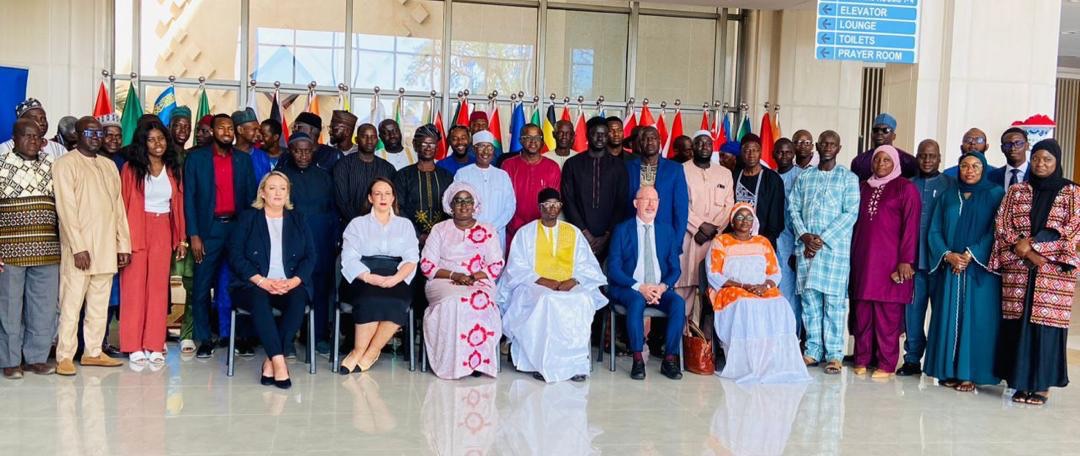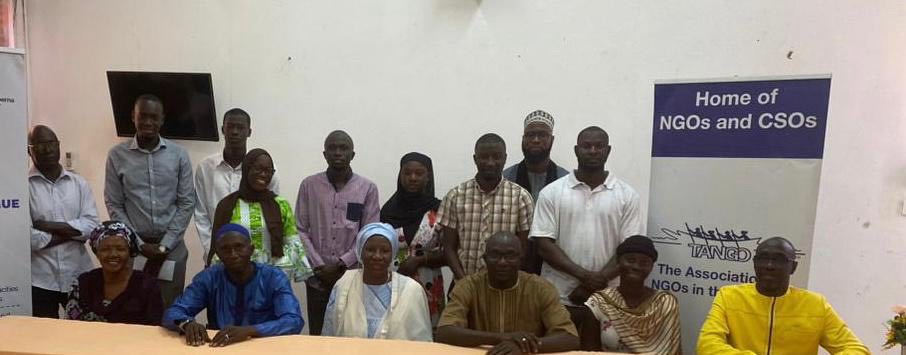By: Binta Jaiteh
The International IDEA in collaboration with the National Assembly Thursday kickstarted a three-day training for lawmakers on the ethics of constitutional and legislative processes.
The three-day training with support from the European Union, aims to build a consensus on the need to build a self-regulatory through the establishment of self-regime.During the opening, deputy clerk of the National Assembly Momodou Sise said the timeliness and relevance of the training cannot be over-emphasized.
He explained that a legislative code of conduct is a formal document, which regulates the behavior of legislators.
“It encourages a decision-making environment, in which misconduct should be less prevalent,” he stated.
The Deputy Speaker of the National Assembly, Seedy Njie, explained that in the course of the three-day training, participants will consider and validate the Code of Conduct for National Assembly Members with a view to tabling it for their consideration and approval during the Second Ordinary Session. This, he said,would be a milestone achievement for the Sixth Legislature as there has never been a formally approved Code of Conduct for Members of the National Assembly of The Gambia, adding that a code of conduct is a necessity in every democratic Parliament.
He stated that the training would be useful to the lawmakers for many reasons.
“It is common knowledge that public accountability and political credibility of Parliaments are cornerstone principles, particularly in constitutional and legislative processes, to which all democratic States subscribe,” stated the deputy House speaker.
According to him, the regulation of parliamentary and ethical standards is an essential element to secure public trust in the efficacy, transparency, and equity of democratic systems, as well as to foster a culture of public service that favours public interest over private gains.
Head of the Country Office of the International IDEA,Mrs. Jainaba Faye, highlighted that “this refresher orientation is designed to enhance the capacity of National Assembly Members and provide them with guides and tools to serve as a reference point in their conduct relative to the fulfilment of their core mandate in constitutional and legislative processes”.
“Parliamentary ethics are the cornerstone of a functioning democracy, defining the standards of behavior expected from our elected representatives, ensuring accountability, integrity, and respect for democratic principles,” she underlined.
The European Union Ambassador, Corrado Pampaloni,told the lawmakers that the training forms a key component of the Consolidation of Democracy (CODE) project supported by the European Union and implemented by the International IDEA.
“Over the next few days, your focus will be on increasing trust in the National Assembly, especially in light of the critical legislation you will be considering in the coming year,” he added.
“As we know, trust in state institutions is fundamental for social cohesion and effective governance. According to the Afrobarometer survey of 2016-2018, trust in parliaments across 34 African countries was 43%, only a percentage point higher than the ruling government.”
He outlined that the findings highlight a critical need for strengthening public trust and improving transparency and accountability within the National Assembly.
“The next three days will support internal efforts to uphold high ethical standards, ultimately ensuring a brighter future for The Gambia,” said the EU diplomat.





